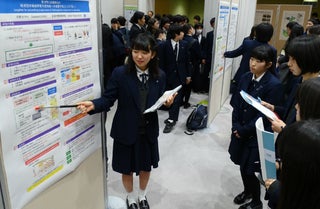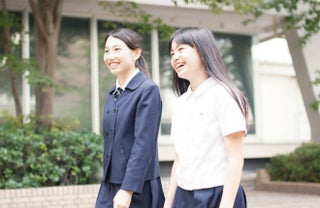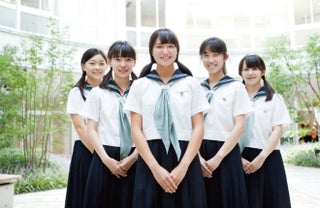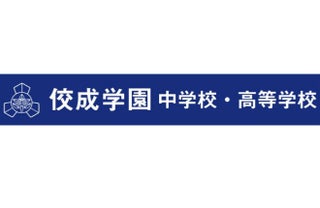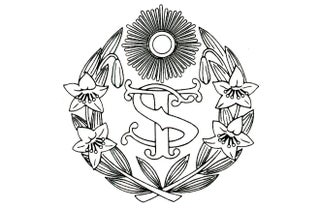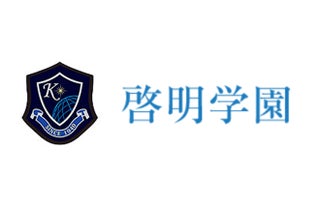Springでは、日本の大学で学んだ経験のあるシンガポール人の方に、日本で学ぶことの魅力や日本・日本語への興味についてお話を聞いています。シリーズ第8回目は、「シンガポール留日大学卒業生協会(Japanese University Graduates Association of Singapore、以下JUGAS)」奨学生として名古屋大学理学部を卒業し、現在ビジネスコンサルタントとして日本で働いているタン・ラシダさんです。
Name: Raashidah Tan(タン・ラシダ)
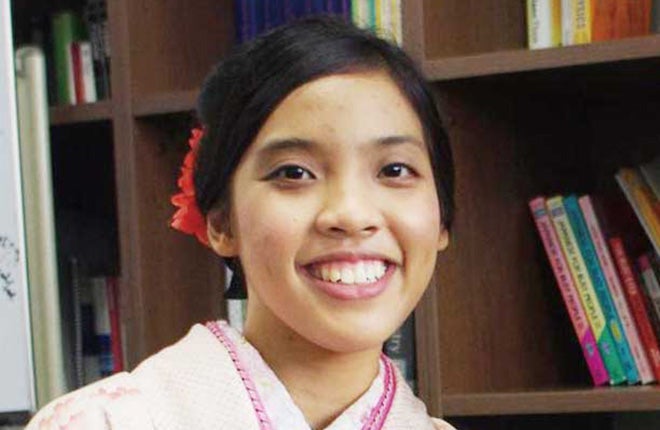
"Be proactive in thinking about what you want to do in the future, instead of just following the standard path expected of you by the society!"
Currently working as a business consultant in SIGMAXYZ, Inc. in Japan.
Educational Background
- Bukit Batok Primary School (1999-2001)
- Nanyang Primary School (2002-2004)
- Nanyang Girls' High School
- Hwa Chong Institution (College)
- Bachelor of Science (Chemistry), Nagoya University
Q. You majored in Chemistry in Nagoya University (NU). What made you decide to goto Nagoya?
Nagoya University(NU)'s Department of Chemistry has produced many Nobel Laureates and is one of the leading universities in Japan in the field of organic synthesis and research. I chose to study there as it presented an opportunity for me to learn directly from the professors who stand at the forefront of chemical research academia, and equip myself with the latest knowledge and technology in the field. I was very impressed that the professors at NU are very devoted to their research, and even among bachelor students, thereis a high level of motivation to produce results.
I enrolled in NU as part of their Global 30 (G30) Programs※, which allowed me to complete my 4-year study entirely in English. This was a major factor in choosing NU, as I had no formal Japanese language education prior to that.
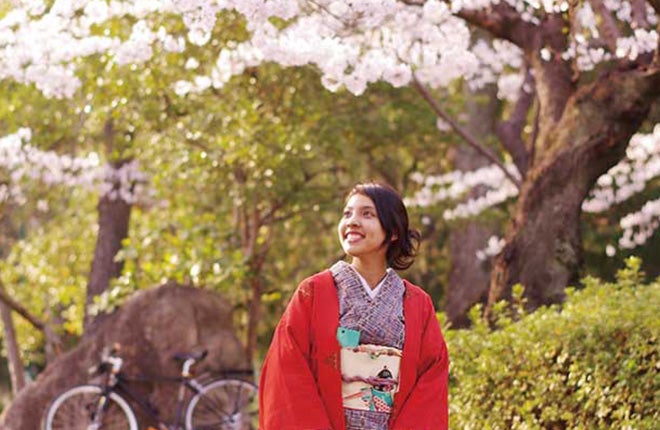 Spring in Tsurumai Park, Nagoya
Spring in Tsurumai Park, NagoyaQ. What was your impression of Japan, and how did it change after you went there?
Before going to Japan, I felt that the scenes in anime were fantasy and meant for entertainment value. After coming to Japan, I realised that much of the scenes in anime depict very realistically the pattern and background of daily life of Japanese, even if the story content is fictitious; for example, how people behave on trains, or how almost all student's everyday life is filled with routines that are very similar to each other's.
Based on stereotypes, I had also expected Japanese people to be difficult to approach, but actually they can be extremely helpful and kind. However, it is also their culture to draw very clear lines between family, friends and acquaintances, personal and work life, etc. This can be seen from the way people interact with each other, as your expression and way of communication change depending on whether you are speaking to a client, a colleague, or how senior/junior/closely acquainted a person is. To be able to understand and accept these quirks about Japanese culture would be the key to assimilating easily into life in Japan.
As for the students here, I feel that they should take on a more active role in thinking about their future, instead of merely following the standard path that they think society expects of them. Many of my Japanese friends continued on to graduate school after finishing their Bachelor's degree, only because they felt that at least a Master's degree was required to secure a stable job, which is not true for all cases.
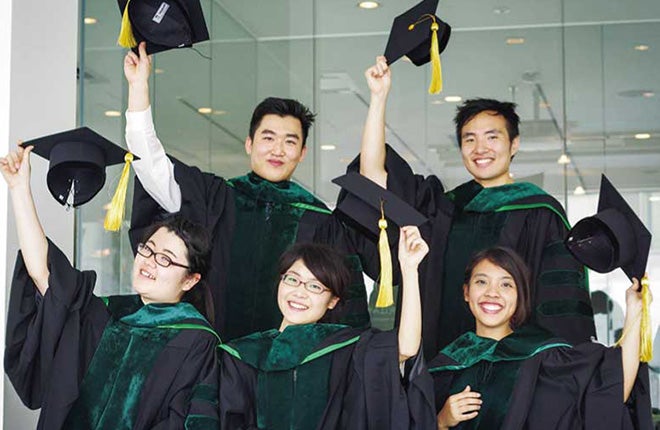 NU G30 Chemistry Class of 2015
NU G30 Chemistry Class of 2015Q. You studied chemistry and now work as a business consultant. How has it been so far and what is your future aspirations?
This is still my first year at my current job, and it is a new challenge for me to learn how businesses work in Japan. As a consultant, I am fortunate to be in a position to have an insider view of the challenges faced by different types of firms in multiple industries. I also plan to work on my Japanese, especially reading and writing in formal Japanese, as I only studied Japanese during my first year at NU.
I am still searching for my dream job (if such a thing exists), or what Iwould like to achieve in the future. One of the reasons I joined my current firm was to expose myself to many different types of work and industries, in the hope that I would be able to find my calling. However, regardless of my future path, I would like to devote the best of my abilities to my work, hence it is important to be in a good work environment with people that are supportive of what I do.
Q. Do you have a message you'd like to share with students who are considering studying at a university in Japan?
In Japan, there are so many universities and specialty schools (both public and private), and they offer a wide range of courses to cater to students with different interests. To students who are considering studying in Japan, don't be afraid to try! Reach out to people around you who have lived there before to hear their experiences, and voice your concerns to the admissions office of the school you are planning to apply to.
As for myself, I am very thankful to have received the JUGAS scholarship. It has enabled me to complete my university study in Japan without financial worries, and given me the opportunity to experience a completely new world and lifestyle.
※G30: Global 30 is an initiative by the Ministry of Education, Culture, Sports, Science andTechnology (MEXT) in Japan, designating top universities in Japan to offer degree programsin English and to minimize cultural and linguistic barriers for overseas students.
http://www.uni.international.mext.go.jp/









